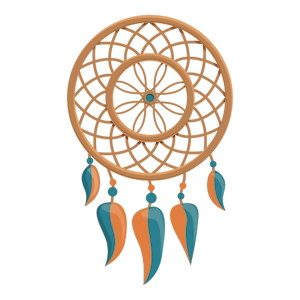What Does It Mean to Dream of Dreams ?
Posted on: November 3, 2024
Last updated: February 19, 2025
Dreams symbolize the subconscious mind’s reflections of desires, fears, and emotions. They serve as guides, revealing unresolved issues and highlighting areas needing attention. Consulting a dream book aids in decoding these symbols, offering clarity and direction for personal growth.

What does Dreams mean in a dream?
Dreams have fascinated humanity for centuries, serving as a window into the subconscious mind. Within the realm of a dream book, dreams are often interpreted as reflections of our deepest desires, fears, and emotions. Each dream carries a unique message, providing insights into our waking lives. The symbolism found in dreams can vary greatly, influenced by personal experiences and cultural backgrounds.
In the context of a dream book, certain elements frequently appear, each holding significant meaning. For instance, common symbols might include water, which often represents emotions, or flying, symbolizing freedom and aspiration. Understanding these symbols can help individuals decode the messages their subconscious is attempting to convey.
Moreover, dreams can serve as a guide, illuminating paths that may not be immediately visible in the conscious state. They can reveal unresolved issues or highlight areas in life that require attention. By consulting a dream book, individuals can gain clarity and direction based on the symbols present in their dreams.
Ultimately, the interpretation of dreams is a deeply personal journey. While a dream book can provide a framework for understanding, the true essence of a dream lies in the individual’s unique experiences and feelings. Embracing the messages within dreams can lead to profound self-discovery and growth.
Meaning in dream books
1. Repressed Emotions
This element in your dream may symbolize repressed emotions that need to be addressed. It suggests that there are feelings or thoughts you have been avoiding, and it’s time to confront them for emotional healing.
2. Unconscious Desires
The presence of this element could indicate unconscious desires that are surfacing. It invites you to explore what you truly want in life and how these desires may be influencing your actions and decisions.
3. Conflict Resolution
Lastly, this element may represent a need for conflict resolution within yourself or in your relationships. It highlights the importance of addressing unresolved issues to achieve inner peace and harmony.
1. Transformation and Change
The appearance of this element in your dream often symbolizes personal transformation. It may indicate that you are undergoing significant changes in your life, leading to a new phase of self-discovery and growth.
2. Spiritual Awakening
This element can also represent a spiritual awakening. It suggests that you are becoming more aware of your inner self and your connection to the universe, prompting you to explore your spiritual beliefs more deeply.
3. Intuition and Inner Wisdom
When this element appears, it may signify the importance of trusting your intuition. It encourages you to listen to your inner voice and rely on your instincts to navigate through life’s challenges.
Dreams in different cultural contexts in dreams
In various cultures, the interpretation of dreams has been a significant aspect of understanding the human psyche and the mysteries of life. In Western culture, dreams are often seen as reflections of our subconscious thoughts and desires. The influence of psychology, particularly the works of Freud and Jung, has shaped the perception that dreams can reveal hidden fears and aspirations. This perspective encourages individuals to explore their inner worlds, leading to a deeper self-awareness and personal growth.
In Slavic traditions, dreams hold a more mystical connotation. They are often viewed as prophetic messages or omens, providing guidance for the waking life. The belief in the spiritual significance of dreams is deeply rooted in folklore, where they are seen as a bridge between the material and spiritual realms. This connection emphasizes the importance of interpreting dreams not just as psychological phenomena, but as vital communications from the universe.
Eastern cultures, particularly in Hinduism and Buddhism, regard dreams as a manifestation of the mind’s activity during sleep, often linked to the concept of karma and reincarnation. In these traditions, dreams can serve as a reflection of one’s spiritual journey, offering insights into past lives and future possibilities. The practice of lucid dreaming is also encouraged, allowing individuals to take control of their dreams and explore their consciousness more deeply.
In Oriental cultures, dreams are frequently interpreted through the lens of symbolism and nature. The intricate connections between dreams and the natural world highlight the belief that our nightly visions can provide wisdom and guidance. This perspective fosters a harmonious relationship between humans and their environment, suggesting that understanding dreams can lead to a more balanced and fulfilling life. Ultimately, the cultural context surrounding dreams enriches our understanding of their significance, revealing a tapestry of meanings that transcend mere nightly occurrences.
Dreams in other contexts of use
Dreams of flying
Experiencing the sensation of flying in dreams often symbolizes freedom and the desire to escape from daily pressures. It can also indicate a sense of empowerment and the ability to rise above challenges.
Recurring dreams
Recurring dreams may suggest unresolved issues or emotions that need attention. They often reflect patterns in our waking life that require reflection and understanding.
Nightmares
Nightmares are often manifestations of anxiety, fear, or stress. They can serve as a wake-up call to address underlying issues that may be affecting mental health.
Lucid dreaming
Lucid dreaming, where the dreamer is aware they are dreaming, can represent self-awareness and control. It may also indicate a desire to explore one’s subconscious mind more deeply.
Dreams of being chased
Being chased in a dream often signifies avoidance or fear of confronting something in waking life. It can represent feelings of insecurity or the need to escape from responsibilities.
Dreams of falling
Falling in dreams can symbolize a loss of control or feelings of inadequacy. It may also indicate a fear of failure or a significant change in life.
Dreams of water
Water in dreams can represent emotions and the subconscious. Clear water may suggest clarity and peace, while murky water can indicate confusion or unresolved feelings.
Dreams of death
Dreaming of death often symbolizes transformation or change. It may indicate the end of a particular phase in life and the beginning of a new one.
Dreams of being naked
Being naked in a dream can signify vulnerability or exposure. It may reflect feelings of shame or insecurity about one’s self-image.
Dreams of losing teeth
Losing teeth in dreams often represents feelings of powerlessness or concerns about aging and appearance. It may also indicate fear of communication issues.
Dreams of flying in space
Flying in space can symbolize exploration of the unknown and a desire for adventure. It may also represent a quest for knowledge and understanding beyond earthly limitations.
Dreams of being in a maze
Being in a maze in a dream often signifies confusion or feeling lost in life. It may reflect a search for direction or clarity in a complex situation.
Dreams of animals
Animals in dreams can represent instincts and primal feelings. The type of animal can provide insight into specific emotions or aspects of the dreamer’s personality.
Dreams of old friends
Dreaming of old friends may indicate nostalgia or unresolved feelings from the past. It can also symbolize a desire for connection and social interaction.
Dreams of travel
Traveling in dreams often symbolizes a journey of self-discovery. It may represent personal growth and the exploration of new opportunities.
Dreams of being lost
Feeling lost in a dream can signify uncertainty or confusion in waking life. It may reflect a need for guidance or clarity about one’s path.
Dreams of shadows
Shadows in dreams can represent the hidden aspects of oneself or repressed emotions. They may indicate a need to confront fears or unresolved issues.
Dreams of a house
A house in a dream often symbolizes the self and personal identity. Different rooms may represent various aspects of the dreamer’s life or psyche.
Dreams of storms
Storms in dreams can symbolize turmoil and emotional upheaval. They may reflect feelings of chaos or conflict in waking life.
Dreams of food
Food in dreams can represent nourishment and fulfillment. It may indicate a desire for comfort or a need to address emotional hunger.
Dreams of being a child
Dreaming of being a child can symbolize innocence and a longing for simpler times. It may also reflect unresolved childhood issues or the need for playfulness.
Dreams of strangers
Encountering strangers in dreams often represents unknown aspects of oneself. They may symbolize new experiences or the need to embrace change.
Dreams of the future
Dreaming of the future can signify hopes, fears, or aspirations. It may reflect the dreamer’s concerns about what lies ahead.
Dreams of being trapped
Feeling trapped in a dream can symbolize feelings of restriction or entrapment in waking life. It may indicate a need for freedom or change.
Dreams of music
Music in dreams often represents harmony and emotional expression. It may indicate a desire for creativity or a need to connect with one’s feelings.
Dreams of technology
Technology in dreams can symbolize progress and innovation. It may reflect the dreamer’s relationship with modern life and its complexities.
Dreams of nature
Nature in dreams often represents growth and renewal. It may indicate a desire for connection with the natural world and a need for tranquility.
Dreams of fire
Fire in dreams can symbolize passion, transformation, or destruction. It may reflect intense emotions or a need to release pent-up energy.
Dreams of being in a crowd
Being in a crowd in a dream can signify feelings of anonymity or a desire for social interaction. It may reflect the dreamer’s relationship with society and belonging.
Dreams of time travel
Time travel in dreams often represents reflection on past experiences or anticipation of future events. It may indicate a desire to change or understand one’s life journey.
Dreams of colors
Colors in dreams can symbolize various emotions and states of mind. Each color may carry specific meanings that reflect the dreamer’s feelings or experiences.
Dreams of mirrors
Mirrors in dreams often symbolize self-reflection and introspection. They may indicate a need to confront one’s true self or assess personal growth.
Dreams of masks
Masks in dreams can represent hidden identities or aspects of oneself that are not fully expressed. They may indicate a desire to explore authenticity and vulnerability.


Comments posted under the entry: 0
The user must be logged in to comment or view comments.